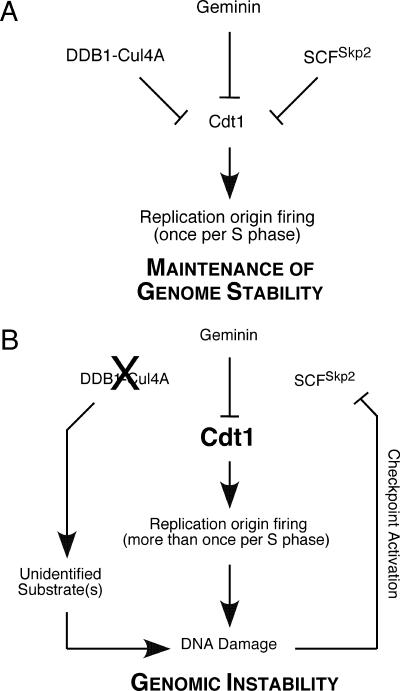FIG. 9.
Model highlighting the importance of DDB1 in Cdt1 regulation. (A) Geminin, DDB1-Cul4A, and SCFSkp2 cooperate to restrain the activity and levels of Cdt1, ensuring that origins of replication fire only once per S phase. (B) siRNA depletion of DDB1 disrupts the DDB1-Cul4A-dependent regulation of Cdt1 and causes DNA damage due to rereplication and impaired regulation of an additional unidentified substrate. DNA damage activates cell cycle checkpoints, which in turn function to inactivate CDK complexes. SCFSkp2-mediated degradation of Cdt1 requires a prior phosphorylation event by CDK; therefore, this mechanism of Cdt1 regulation is disrupted by the presence of active checkpoints. The deregulation results in increased Cdt1 levels that promote rereplication, leading to greater DNA damage, and amplification of genomic instability.

